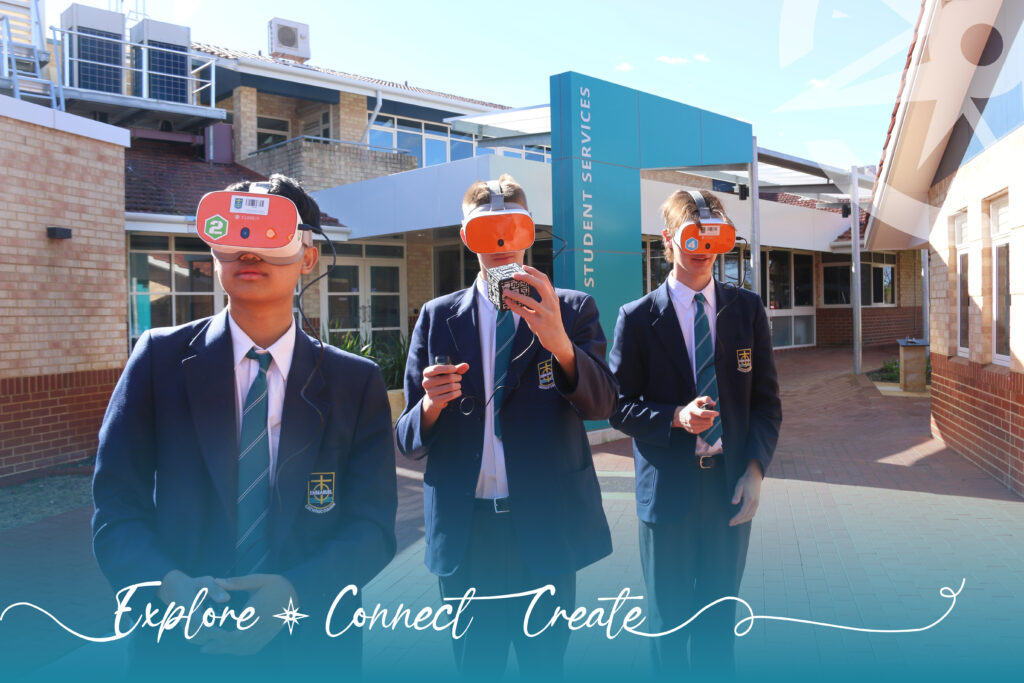Emmanuel Catholic College aims to be a leader in education throughout WA and beyond. We aim to do this by finding innovative ways to engage our students in their learning and provide individualised pathways to ensure that each child reaches their goal beyond their time at school.
As we move further into the 21st century, it is evident that there has been a shift in how education is viewed. In the past, education was a one size fits all type of deal where all students were taught the same way and were expected to learn in the same fashion. Due to the advances in technology and research, we are able to see that each student learns differently and that not every method of teaching works for every student. We know that when we can meet this need, student engagement increases.
At Emmanuel, we believe it is essential that we strive to engage students in the classroom in order to maximise their learning potential. We aim to involve students in activities such as hands-on projects, student-led discussions, and respect student voice to further promote a passion for life-long learning.
Critical thinking is a key component of engaging our students and encouraging learning. When students are encouraged to think deeply and analytically, they can make connections between concepts, form opinions, and better understand the material. Teaching critical thinking skills helps to create a passion for learning and encourages students to think outside of the box. This creates a stimulating environment that is conducive to learning and helps to promote higher level thinking and problem-solving. This is why at Emmanuel, students will experience a variety of learning styles, and experiences beyond the traditional classroom environment. We are proud of our College and the potential each child is able to discover during their time here.
Vision for Learning

Emmanuel Catholic College’s Vision for Learning provides a contemporary understanding of what it means to be a member of the Emmanuel learning community.
Stemming from the Emmanuel Catholic College Vision and Values, the Vision for Learning encompasses input from all stakeholders in the Emmanuel community providing a shared vision as to the future of education at Emmanuel Catholic College.
Informed by contemporary research and best practice, our Vision for Learning is centred around hands-on, practical experiences that focus first and foremost on the acquisition of skills, particularly in the areas of: Character, Communication, Creativity, Critical Thinking, Citizenship, Collaboration, Resilience and Independence.
Our Vision for Learning is centred around the concepts of EXPLORE, CONNECT and CREATE.

